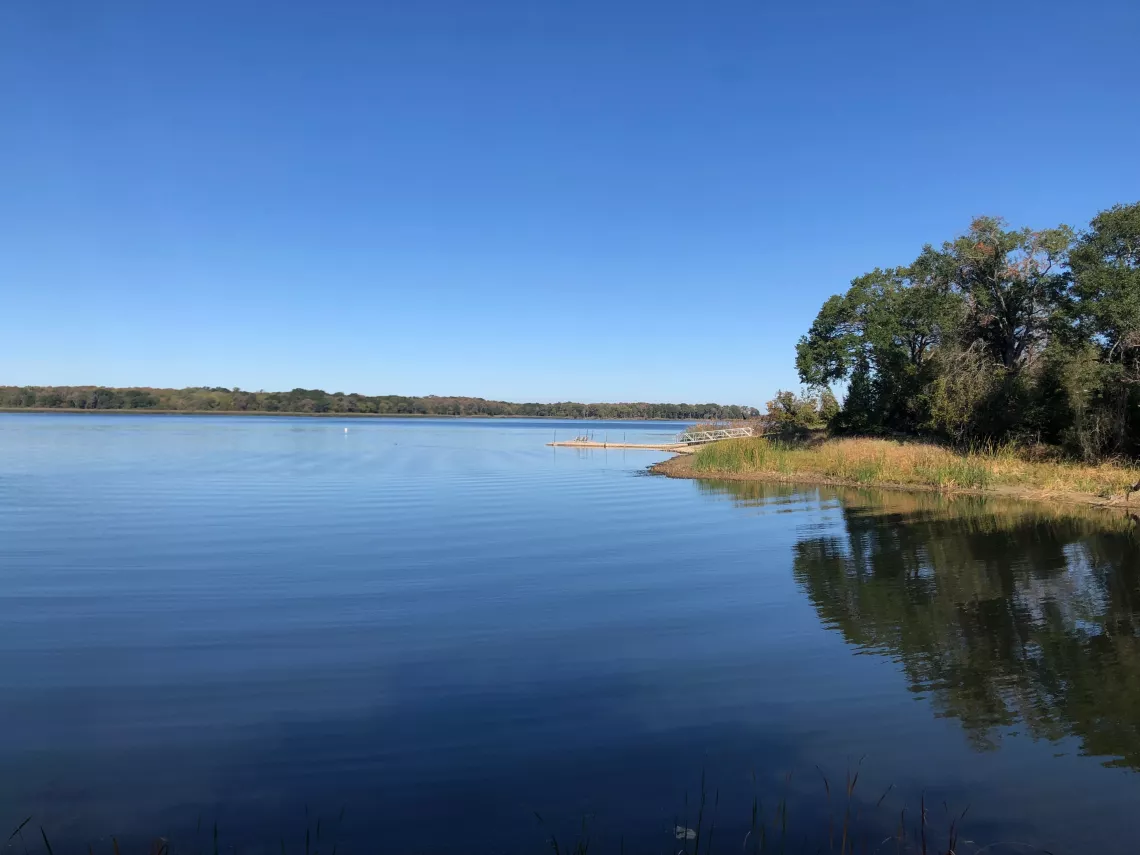
By Misti Little
This was the Centennial Year Celebration of Texas State Parks, and it was widely touted by the state. Ironically, this was also the year the Lone Star Chapter of the Sierra Club, local grassroots groups, and statewide advocates received with great disappointment and sorrow the Texas Parks and Wildlife's (TPWD) decision to back out of their year long pursuit of reobtaining Fairfield Lake State Park, Fairfield Lake, and the additional associated property.
TPWD’s decision to stop short of using the full extent of the legal avenues available to them, which by opting out of appealing the eminent domain valuation set by a special commission on November 15, 2023, leaves the property in the hands of Dallas developer Todd Interests. The special commission valued the property at $418.3 million, roughly a little more than four times the purchase price of $103 million in June of this year and well over the $125 million set aside by the legislature to spend on the 5,000 acre property last spring.
The developer has previously stated their plans for the once public land to be used to create a luxury gated community and golf course, as well as to drill several deep wells into the Carrizo-Wilcox aquifer in order to supplement lake water to sell to municipalities around the state.
Located approximately 95 miles south of Dallas, Fairfield Lake State Park was the 2022 Texas State Park of the Year, hosting as many as 80,000 park visitors annually. Alongside its human visitors, the state park provided habitat for a diverse array of wildlife from white-tailed deer, bald eagles, American white pelicans, canebrake rattlesnakes, and river otters (as well as a plethora of smaller birds, amphibians and reptiles, and insects).
Floral species that provided forage material and habitat for wildlife included unique grasses and forbs as well as a rare prairie remnant that had been delineated by the Native Prairie Association of Texas. All will soon vanish.
Additionally, old-growth hardwoods, rare and uncommon herbaceous species such as trout lilies, nodding ladies’ tresses orchids, and the bulbous adder's-tongue fern will be decimated by the development. Even now, these have been noticeably thinned or scraped away with construction equipment by the developer’s contractors during the interim condemnation period when the state was still attempting to reobtain the park. As one local advocate succinctly put it, ”[seeing] this makes me just want to cry for the wildlife out there… so many [of us] put everything into this.”
As Texas suburbs continue to expand outward, once open land in the form of forests, prairies, ranches, or farms will be swallowed by development if preservation of land is not planned and considered as a counter action for this growth. The recent passing of Proposition 14 shows that Texans overwhelmingly support the expansion of public land in the form of state parks, not only for recreation but for conservation as well. Prop 14 is a noteworthy start to make up for decades of neglect of, and within, the Texas state park system. However, it's not a cure all, and Texas cannot continue to lose access to public lands already in existence, now or in the future. One of the many lessons that should be learned from the loss of Fairfield Lake State Park is that elected officials should heed and see the warning signs for future scenarios similar to this current tragedy and take action before these situations reach a fever pitch. The legislature needs to be funding Texas Parks and Wildlife fully, not only for Prop 14, but also for properly managing lands it currently maintains.
The loss of Fairfield Lake State Park should be of concern to every Texan, and a guidepost to not take local, public spaces for granted, and to be invested in park land at every level (including city, county, and federal public lands). What is protected today may be gone tomorrow due to failures to secure proper ownership or even developments such as roadway expansions into natural areas. Once these public park lands of peace and refuge for humans and wildlife are gone, they're gone. There is no going back.
May the memory of Fairfield Lake State Park and its demise be the motivator for governments and advocates alike to enact change now, before history repeats itself and it's too late.